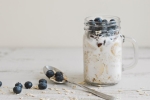Nutrition After Rotator Cuff Surgery

Nutrition plays a crucial role in muscle recovery after rotator cuff surgery. Proper dietary choices can help reduce inflammation, promote healing, and restore muscle strength. Here are some key nutritional strategies to support recovery:
1. Protein for Tissue Repair and Muscle Maintenance
- Sources: Lean meats, fish, poultry, eggs, dairy products, legumes, nuts, seeds, and soy products.
- Benefits: Protein is essential for the repair and regeneration of muscle tissues. It also helps maintain muscle mass during periods of inactivity.
- Recommendation: Aim for 1.2 to 2.0 grams of protein per kilogram of body weight per day, depending on your level of activity and the extent of the surgery.
2. Anti-Inflammatory Foods
- Sources: Fruits (berries, cherries, oranges), vegetables (leafy greens, tomatoes, bell peppers), fatty fish (salmon, mackerel, sardines), nuts (walnuts, almonds), seeds (chia seeds, flaxseeds), and healthy oils (olive oil, avocado oil).
- Benefits: Anti-inflammatory foods help reduce swelling and pain, promoting a quicker recovery.
- Recommendation: Incorporate a variety of these foods into your daily diet to manage inflammation.
3. Omega-3 Fatty Acids
- Sources: Fatty fish, flaxseeds, chia seeds, walnuts, and fish oil supplements.
- Benefits: Omega-3 fatty acids have strong anti-inflammatory properties and can help reduce muscle soreness and joint stiffness.
- Recommendation: Include fatty fish in your diet at least twice a week, or consider taking a fish oil supplement after consulting with your healthcare provider.
4. Vitamins and Minerals for Healing
Vitamin C
- Sources: Citrus fruits, strawberries, bell peppers, broccoli, and Brussels sprouts.
- Benefits: Vitamin C is crucial for collagen synthesis, which is essential for repairing tendons and ligaments.
- Recommendation: Ensure you get at least the recommended daily allowance (RDA) of vitamin C, which is 90 mg for men and 75 mg for women.
Vitamin A
- Sources: Carrots, sweet potatoes, spinach, and kale.
- Benefits: Vitamin A supports immune function and helps with the formation of new tissue.
- Recommendation: Aim for the RDA of 900 mcg for men and 700 mcg for women.
Vitamin D
- Sources: Fatty fish, fortified dairy products, and sunlight exposure.
- Benefits: Vitamin D is important for bone health and muscle function.
- Recommendation: Aim for 600-800 IU per day, depending on age and sun exposure. A supplement may be necessary if levels are low.
Calcium
- Sources: Dairy products, leafy green vegetables, and fortified plant-based milk.
- Benefits: Calcium is essential for bone health and muscle contraction.
- Recommendation: Aim for 1,000 mg per day for adults.
Zinc
- Sources: Meat, shellfish, legumes, seeds, and nuts.
- Benefits: Zinc plays a vital role in wound healing and protein synthesis.
- Recommendation: The RDA is 11 mg for men and 8 mg for women.
5. Hydration
- Sources: Water, herbal teas, and hydrating foods like fruits and vegetables.
- Benefits: Staying well-hydrated is essential for overall health and recovery, as it helps transport nutrients to the healing tissues.
- Recommendation: Aim for at least 8 cups of water per day, more if you are active or sweating.
6. Avoiding Nutritional Pitfalls
- Processed Foods: Avoid foods high in sugar, unhealthy fats, and refined grains, as they can increase inflammation and slow the healing process.
- Excessive Alcohol: Alcohol can interfere with the body’s ability to heal and recover, so it’s best to limit or avoid it during the recovery period.
Sample Meal Plan for Muscle Recovery
Breakfast
- Greek yogurt with mixed berries and a sprinkle of chia seeds
- Whole-grain toast with avocado
Snack
- Apple slices with almond butter
Lunch
- Grilled chicken salad with mixed greens, cherry tomatoes, bell peppers, walnuts, and olive oil dressing
- Quinoa on the side
Snack
- A smoothie made with spinach, banana, protein powder, and almond milk
Dinner
- Baked salmon with a side of roasted sweet potatoes and steamed broccoli
- A small salad with leafy greens, carrots, and a light vinaigrette
Evening Snack
- Cottage cheese with pineapple chunks
Summary
A balanced diet rich in protein, anti-inflammatory foods, omega-3 fatty acids, vitamins, and minerals is essential for muscle recovery after rotator cuff surgery. Staying hydrated and avoiding processed foods and excessive alcohol can further support the healing process. Tailoring your nutrition to include these elements can help reduce inflammation, promote tissue repair, and restore muscle strength, facilitating a smoother and quicker recovery. Always consult with your healthcare provider or a registered dietitian for personalized advice.







